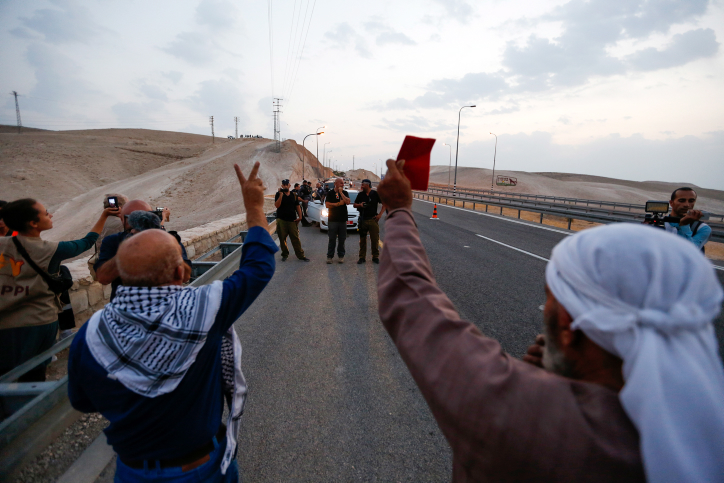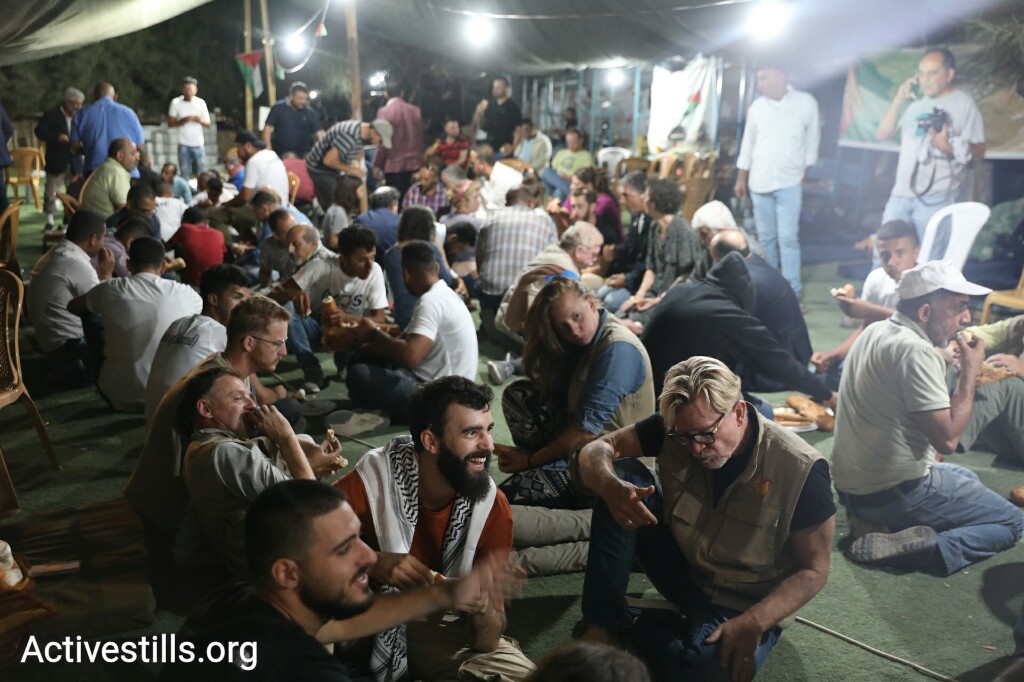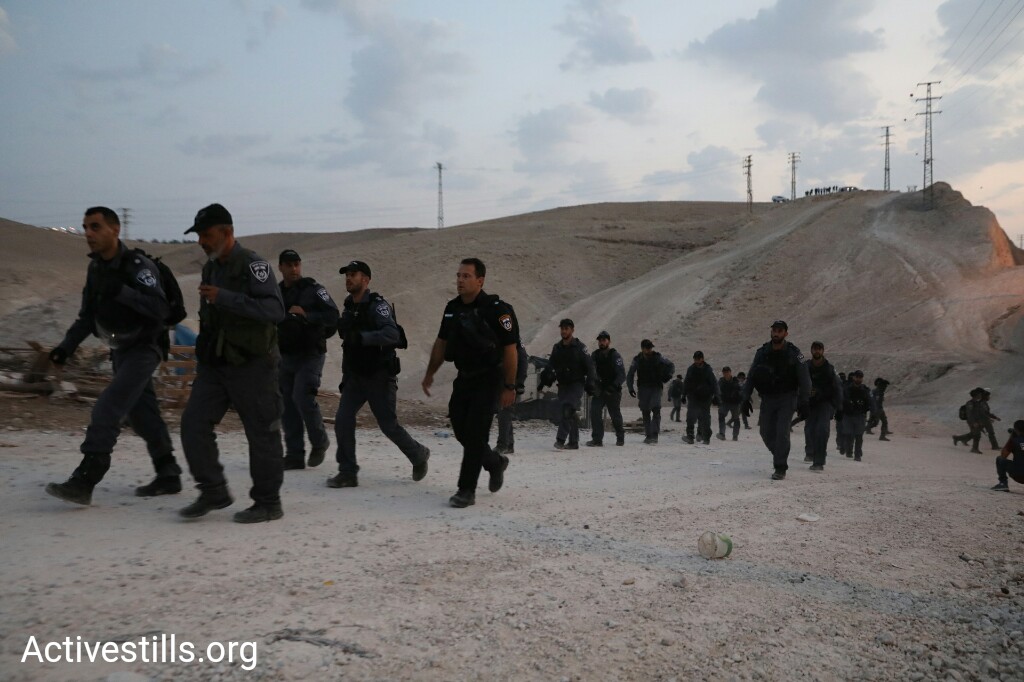Israel may demolish and evict the Palestinian-Bedouin community any day now, and activists are maintaining a presence there until it does. Israeli forces demolish a small, protest camp that was erected earlier in the week.
By Oren Ziv

An Israeli High Court injunction preventing the forced displacement and demolition of the Bedouin community of Khan al-Ahmar expired at midnight on Tuesday. Israeli army bulldozers may show up at any time now to destroy the West Bank Palestinian village, strategically situated between Jerusalem and the Israeli settlement of Ma’ale Adumim.
Around 100 Palestinian, international, and Israeli activists visited the village the night the injunction ended, to make sure that the residents are not alone when security forces arrive to demolish it. A huge tent was erected in the school courtyard, which has become the headquarter of the struggle, and dozens of mattresses and blankets dotted the AstroTurf-covered ground. There were no signs of whether the demolition would be carried out that night, but nobody was going to take any chances.
A single police car was parked across the village, on Route 1, which curves around Jerusalem to the settlement of Ma’ale Adumim and down to the Dead Sea. Police officers were not preventing activists from marching into the village.
The night before, on Rosh Hashana, Palestinian activists established a protest camp, Wadi al-Ahmar, between the village and the settlement of Kfar Adumim. They erected four shacks made of wood and aluminum, and said police officers who showed up at the scene looked confused and did not know what to do. According to the activists, the new neighborhood was built on privately owned Palestinian land. Early Thursday morning, Israeli authorities came back to demolish the four shacks that comprised Wadi al-Ahmar.

A hundred or so activists also stayed in the small village Wednesday night, and similar solidarity groups are expected to maintain a presence until Israeli troops come to demolish the village. While the EU has warned Israel against the forced displacement, the assumption among activists is that the demolition is only a matter of time, and the timing is merely a logistical matter for the Israeli forces.
The Khan al-Ahmar residents and the activists who came to support them plan to nonviolently resist the demolition orders by barricading themselves into the village’s school. Since the school is relatively closed off and fenced in, however, the activists are worried police might isolate them, remove members of the press and photographers from the compound, and then use violence against them in the eviction.

Activists have reason to worry. Almost two years ago, in Umm al-Hiram, in southern Israel, Israeli police arrived in the dead of night with hundreds of armed forces in order to carry out a similar demolition. The militaristic approach led to a chain of events that left a resident of the village, Yaqub al-Qi’an, and a police officer, Erez Levi, dead.
Walid Assaf, the Palestinian Authority’s Chairman of the Commission Against the Wall and Settlements, who also spent the night at the village on Tuesday, said he hopes the demolition can be averted, “because its demolition will affect 225 other communities that find themselves in a similar legal state, and are also in danger.”
In the E1 area between Jerusalem and the West Bank settlement of Ma’aleh Adumim, 24 Palestinian communities face similar demolition orders, and the concern is that the destruction of Khan al-Ahmar will just be the start of demolitions throughout Area C, the more-than-60-percent of the West Bank where Israel exercises full military and civilian planning control, where the Israeli army general approves almost no Palestinian construction.
There are added consequences to the demolition of Khan al-Ahmar, said Assaf: “If they succeed here, it will split the northern West Bank from the south, and promote ethnic cleansing in Area C, and prevent the establishment of a Palestinian state, which cannot exist only in Area A and B. These are the reasons why Europe is pressuring Israel to delay or cancel the demolition.”
The Palestinian Authority is also planning for the day after the demolition. “If they destroy Khan al-Ahmar, the people here will not be left alone. We will build the village over and over, we will stay here and protect our right to study and live here,” said Assaf.
Other activists were worried about the day after the demolition from other angles. One man, from Bethlehem, said he believes support should not only be limited to resisting the eviction, but also to providing psychological guidance, especially to children, once the demolition takes place.
Oren Ziv is a staff writer for Local Call, where a version of this article was first published in Hebrew. Read it here.

